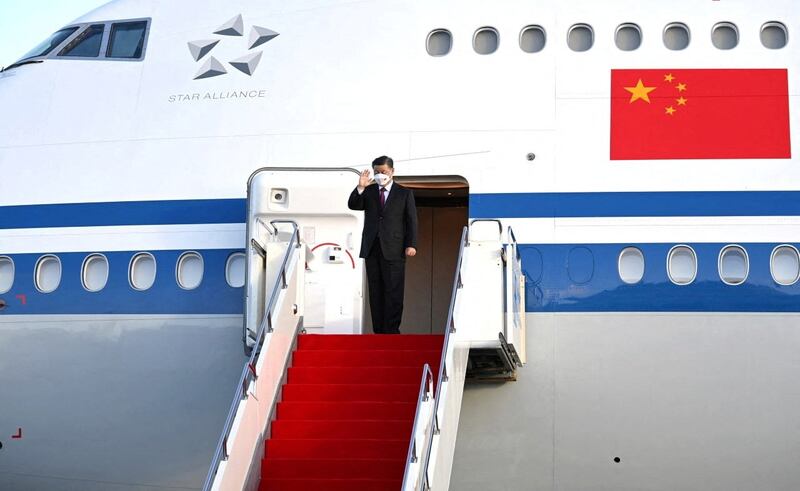Chinese leader Xi Jinping has arrived in Kazakhstan at the start of a state visit to two Central Asian countries that will see him meet with Russian president Vladimir Putin on the sidelines of a regional strategic summit in Uzbekistan, and amid speculation of a meeting with the Pope.
Xi touched down in Nur-Sultan on Wednesday morning, where he was met by Kazakh president Nursultan Nazarbayev and other senior officials, state news agency Xinhua reported.
He will be in the country at the same time as Pope Francis, prompting speculation that there could be a meeting.
Asked en route to Kazakhstan whether he would meet Xi, the Pope replied that he was ready to go to China at any time, but said he had no information on any potential meeting.
Taiwanese national security researcher Shih Chien-yu said that even if the meeting does take place, the Chinese Communist Party (CCP) is unlikely to concede much on its treatment of Chinese Catholics, amid an ongoing clampdown on all forms of religious activity.
"The CCP hasn't been in further contact with the Holy See [since a deal was signed between the two sides in 2018]," Shih said. "They haven't felt the need to make any more concessions ... because they are implementing their sinicization of religions policy."
Chang Chia-lin, former religious affairs professor at Taiwan's Aletheia University, said the 2018 deal had been functioning well so far.
"I think it has been maintained so far," Chang said. "As for the Pope, if he makes any visits to Chinese dioceses, then this will likely be a warning signal that the Vatican is getting ready to cut diplomatic ties with Taiwan."
"But he hasn't been allowed to visit them yet by the Chinese side."

Meanwhile, Beijing declined to comment on the forthcoming meeting with Putin, which has been confirmed by the Russian side.
"The heads of state of China and Russia have maintained close contact and conducted strategic communication through various means for a long time now," Chinese foreign ministry spokeswoman Mao Ning told a regular news briefing in Beijing.
"Regarding the specific questions you mention, I have no information at present, and refer to you previously published news." she said.
Li Zhanshu, the No. 3 figure of the Communist Party of China and Chairman of the National People's Congress, has just left Russia. while Yang Jiechi, Director of the Office of the Foreign Affairs Commission of the Central Committee of the Communist Party of China, met the Russian ambassador to China on Sept. 12.
Xi's trip is expected to focus on broad strategic concerns in response to the United States' formation of the Quad alongside Japan, Australia and India in a bid to counter Beijing's increasingly assertive foreign policy.
Xi and Putin will meet at the eight-member SCO Summit, which also includes Uzbekistan, India and Pakistan, with the president taking the trip at a time when Chinese citizens have been barred from non-essential foreign travel.
It also comes as his ruling Chinese Communist Party (CCP) gears up for its 20th National Congress on Oct. 16, during which Xi is widely expected to secure an unprecedented third term in office following constitutional amendments in 2018.
The last time Xi met Putin at the February 2022 Winter Olympics -- shortly before Russian launched its invasion of Ukraine -- the two leaders declared a "no limits" friendship that has seen China claim neutrality but decline to criticize the war, amid a large spike in its exports of electronics components and other raw materials to Russia since the war began.
Until now, Xi has taken part in other international engagement via video link, only making the trip to Hong Kong to mark the 25th anniversary of the city's handover to China.
Formed under Xi's predecessor Hu Jintao, the SCO is seen as a counterweight to U.S. alliances across East Asia to the Indian Ocean amid increasingly tense relations with Washington, Europe, Japan and India over trade, technology, security, Taiwan, Hong Kong, human rights and territorial conflicts at sea and in the Himalayas.
Rolling out his "Global Security Initiative" in April, Xi said he aimed to ”uphold the principle of indivisibility of security” and “oppose the building of national security on the basis of insecurity in other countries.”
Translated and edited by Luisetta Mudie.
